Miele presents the future of cooking at Living Tomorrow in Belgium
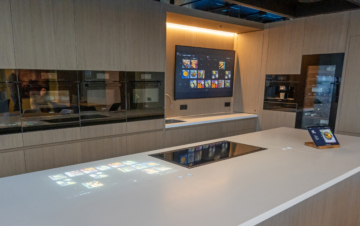
The future of cooking takes shape in Vilvoorde near Brussels. There, Miele has installed a Food Lab in the futuristic Living Tomorrow building. It combines digital high tech and artificial intelligence with the company's kitchen appliances. Assistance systems provide guidance during cooking and respond to voice commands, gestures and input from a tablet or a touch screen on the worktop. The job of weighing of ingredients is assumed by a pair of scales integrated into the hob.
Living Tomorrow sees itself as an experimental innovation centre and was inaugurated last year. More than 80 partner companies have their visions of life in the future on display. Alongside the Food Lab, further installations about living, mobility and working can be experienced, including robot service from Miele.
The assistance systems in the Food Lab have been given the names 'Nutrition Assistant' and 'Cooking Companion'. Both are prototypes controlled via the Miele Cloud and featuring functionalities, several of which are likely to reach market maturity in just a matter of years. The vision of the Nutrition Assistant: This planner in the kitchen scenario is familiar with family members and their favourite recipes but also their special dietary needs and allergies to foodstuffs.
The Nutrition Assistant compiles weekly menus and takes into account which members of the family will be present at the respective meals. The Nutrition Assistant does justice to its name in respect of one further detail: On request, it is able to assess the vital and activity data of the user, provided for instance via wearables, and compiles a personalised weekly menu.

The transition from the menu planning to the digital chef de cuisine, the Cooking Companion, is seamless – and can be experienced live in the Food Lab. Work can commence as soon as ingredients are available. In the case of complicated recipes, work can be shared among multiple helpers, either by ingredients or by course, allowing, say, making the main dish or hors d'oeuvres to be delegated.
As a smart, self-learning system, the Cooking Companion becomes familiar with the capabilities of cooks in a household and gradually adjusts to their individual pace. This time management is a key feature of the system as it guarantees that all dishes and courses of a menu are served on time. Using this approach, the Cooking Companion prompts users to put food into the oven or the steam cooker or to pre-heat the frying pan on the hob. Settings such as operating modes, temperatures and times are controlled by the system behind the scenes in the context of the recipe being followed.
'With such an intelligent system, everyone will be able to create good, healthy meals in their own kitchen – independent of their age or previous knowledge', says Andreas Enslin, Chief Designer at Miele. 'Artificial intelligence compensates for all this. It makes sure that nothing overcooks or boils over and controls the cooking process so that an entire menu is ready at the designated time', Enslin continues.
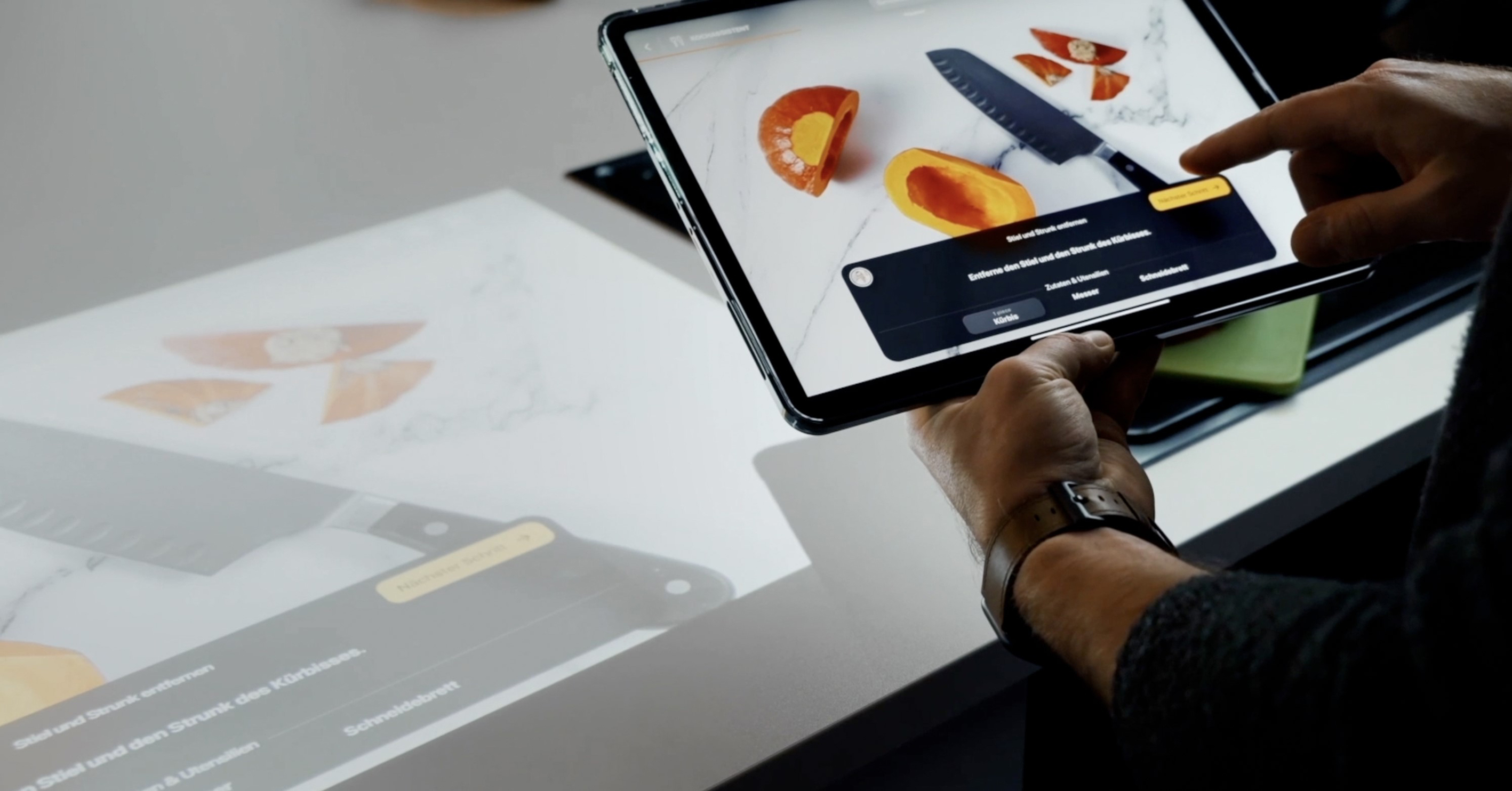
Robots as bellboys and for automatic room service
A second project has been brought to life by Miele at the Voco Hotel, which takes in several storeys at the Living Tomorrow building. Service robots wend their way along the hotel corridors in the service of guests. These autonomous prototypes carry suitcases and feature drawers used by room service: The hotel guest places an order from the convenience of an app, the robot is loaded in the hotel office or kitchen with the ordered items and announces its arrival in advance by calling the guest's smartphone.

Living Tomorrow offers guided tours of the futuristic building. Interested parties can register on the website. The Miele Food Lab constitutes part of the Sapor restaurant run by the Belgian star chef de cuisine Marc Clement but can be repurposed at short notice for showcases and workshops on assisted cooking at Miele events – in any case, the view of Brussels from the twelfth floor is stunning.
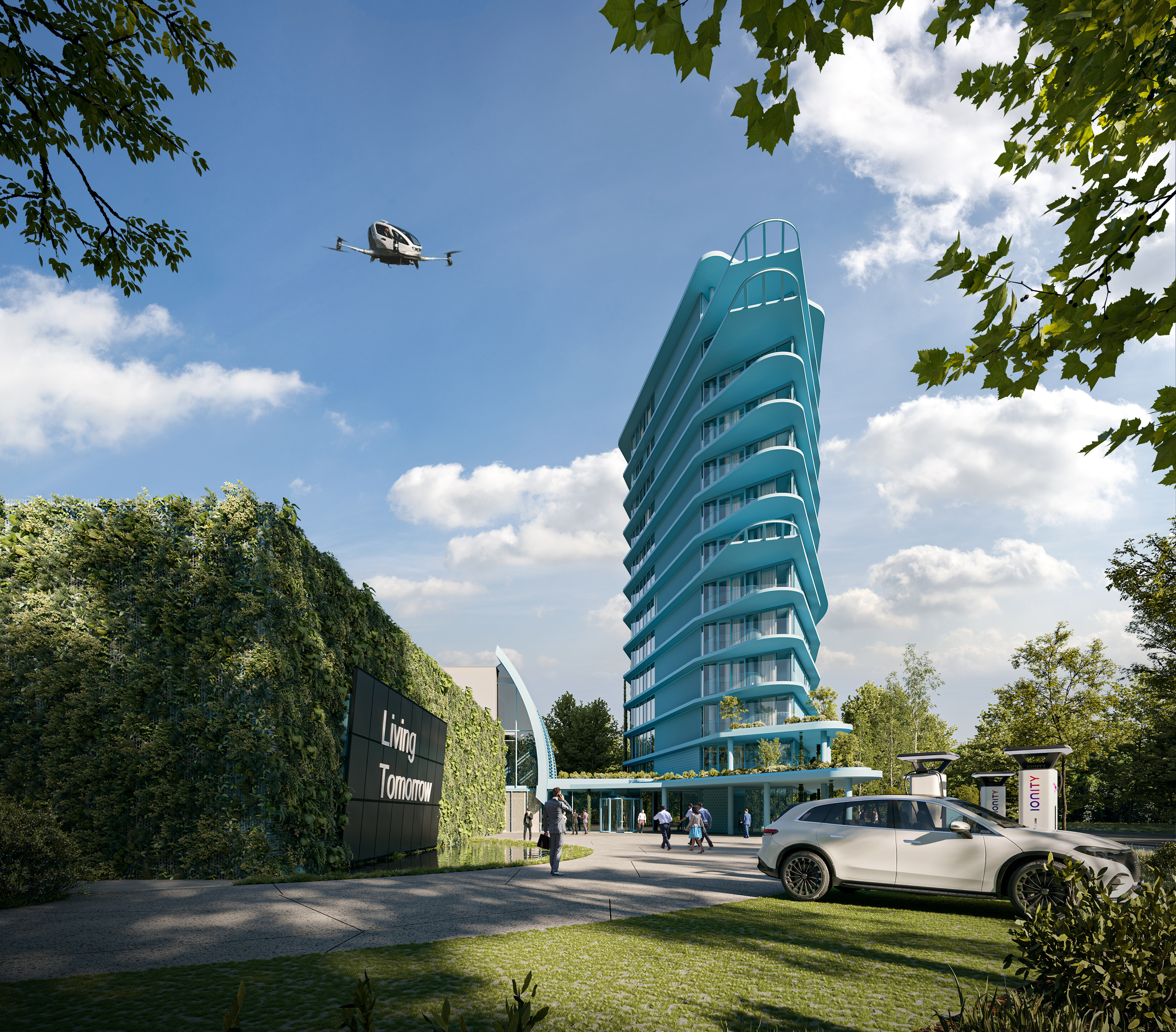
Living Tomorrow welcomed Dr. Markus Miele, Executive Director at Miele. Our co-chairman Joachim De Vos seized the opportunity to discuss the company's future strategy and its commitment to sustainability. Watch the interview here:
Latest insights & stories
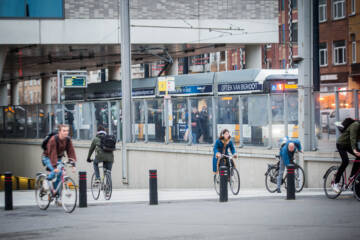
ROAD SAFETY
Since 2018, the number of traffic casualties in Flanders has risen again. Currently, the figures are stagnating, but the risk of accidents with injuries remains high for vulnerable road users in Flanders. And that while traffic should be safe for all users and modes. We want to change this by focusing on transparent policy, training on safe behavior, infrastructure improvements, legislation and enforcement.

What is needed for a more circular construction sector? Insights from Sien Cornillie, Circularity expert at NAV
NAV, or "Netwerk Architecten Vlaanderen," is a professional organisation for architects in Flanders. It offers various services including professional development and advocacy for the architectural sector. NAV also fosters networking opportunities and provides advice on legal, technical, and management aspects. The network is currently working on a position paper on circularity. We sat down with Sien Cornillie, an expert on circularity and energy at NAV. This interview reflects her own opinion.
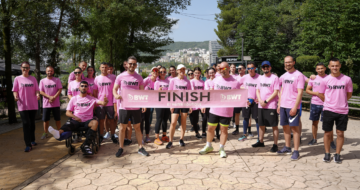
A Global Movement: The World Unites in a Pink Pledge for Clean and Sustainable Water
5,000 participants. 32 countries. €30,000 funds raised. And that's just the beginning.
Picture this: One step that sends ripples across the globe, transforming lives and creating waves of change. You might wonder, how can such a simple action for most of us have such a profound impact?